The girl was 17, a high school junior, when she stood up on May 8 at the open discussion fostered by the Cleveland Browns among high school students, members of the Cleveland Police Department and players and front office representatives of the team.
Why, Helen Greer-Garrett asked, was so much made of school shootings when she has lived with gun violence every day of her life?
"She went on to say that she's at a point in her life now where gunshots are common," said Dr. Terrance Menefee, the principal of John Adams High School in one of Cleveland's tougher areas. "She doesn't even duck anymore when she hears gunshots because it's so common."
Vince Montague, president of the Black Shield Police Association, a group of African-American police officers, teared up listening to Greer-Garrett at what the Browns called a Neighborhood and Equality Summit.
"She felt bad about the deaths -- don't misinterpret that," Montague said. "But she's seen people die. She's seen all kind of guns. Two of her friends were shot and killed."
Greer-Garrett concluded by asking a question: What can I do to help stop these shootings?
Her emphasis on positive change was the exact reason the Browns set up the summit. This was an effort by the team to bring law enforcement and the community together, and it started after players knelt in prayer during the national anthem before a preseason game in August 2017, a few days after white supremacists marched in Charlottesville, Virginia. Soon after that game, Browns players approached owners Jimmy and Dee Haslam to ask what they could do beyond kneeling to make a difference.
"The players were ambassadors back to the team, the officers were ambassadors back to our department," said Sergeant Jennifer Ciaccia, public information officer for the Cleveland Police Department, who attended the Summit. "They're not really protesting me and you, they're protesting civil injustices and things that everyone wants to be better. We don't like bad cops either. We don't like when things are not going well in the community. It's a matter of perspective and listening."
The team in Cleveland was not alone in this effort, as numerous NFL teams made significant voluntary efforts behind the scenes to go beyond taking a knee during the national anthem. Many NFL teams did work on their own to reach out in the community to bring active life to their political statements.
Here are a few of the examples of players and teams trying to make positive efforts in different ways:
The Players Coalition
The NFL and its players formed the coalition, led by Malcolm Jenkins and Anquan Boldin. It focuses on social justice issues important to players, and the league has donated close to $89 million to fund its efforts. One emphasis: Let's Listen Together, an effort nationwide to improve police and community relations. -- Pat McManamon
Colin Kaepernick
Kaepernick was the first player to take a knee during the anthem. After his action drew notice and criticism, Kaepernick pledged and donated $1 million of his money to more than 30 organizations working in at-risk communities. Kaepernick also fully funded the Know Your Rights Camp campaign that held meetings to raise awareness about higher education, self-empowerment and instructions on how to interact with law enforcement. For his work, Kaepernick was awarded the Amnesty International Ambassador of Conscience Award for 2018. -- McManamon
San Francisco 49ers
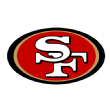 The 49ers tried to increase focus on under-served communities after Kaepernick began his protest. On Sept. 8, 2016, CEO Jed York announced that the team would be donating $1 million to two Bay Area charities whose priority is "improving racial and economic inequality." In October of last year, the Niners announced that they were teaming with law enforcement groups from various parts of California and New York to advocate for "common sense legislation" to ban bump stocks and any other mechanism that allows for the conversion of semi-automatic weapons into automatic weapons, as well as armor-piercing bullets and gun silencers. The team's involvement with police on the initiative is believed to be the first of its kind to include a professional sports team. -- Nick Wagoner
The 49ers tried to increase focus on under-served communities after Kaepernick began his protest. On Sept. 8, 2016, CEO Jed York announced that the team would be donating $1 million to two Bay Area charities whose priority is "improving racial and economic inequality." In October of last year, the Niners announced that they were teaming with law enforcement groups from various parts of California and New York to advocate for "common sense legislation" to ban bump stocks and any other mechanism that allows for the conversion of semi-automatic weapons into automatic weapons, as well as armor-piercing bullets and gun silencers. The team's involvement with police on the initiative is believed to be the first of its kind to include a professional sports team. -- Nick Wagoner
Miami Dolphins
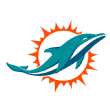 In 2015, owner Stephen Ross created the Ross Initiative in Sports for Equality, or RISE, with the goal to harness the unifying power of sports to improve race relations and drive social progress. Through this relationship, the Dolphins conducted a series of events designed to bring the community, law enforcement and military together. Included was a Town Hall with community leaders, law enforcement and youth coaches; ride-alongs with North Miami and Broward County sheriffs; hosting a voter registration effort after a September 2017 practice; and a South Florida High School roundtable with players, law enforcement and students discussing topics from activism to building inclusive communities. In addition, the Dolphins' community mission is "Teamwork at Work." Its goal is to level the playing field through the power of teamwork to inspire a healthier, more educated and united South Florida community. The Dolphins believe it is important to be inclusive of the diversity and aware of the intersections that make up South Florida. "It's not about one group. Social justice doesn't have one face -- nor one race, gender, sexual orientation or identity. We embrace our role as leaders in South Florida and believe the Miami Dolphins can serve as an inspiring and uniting force in our community," said Jason Jenkins, the Dolphins' senior vice president of communications and community affairs. -- McManamon
In 2015, owner Stephen Ross created the Ross Initiative in Sports for Equality, or RISE, with the goal to harness the unifying power of sports to improve race relations and drive social progress. Through this relationship, the Dolphins conducted a series of events designed to bring the community, law enforcement and military together. Included was a Town Hall with community leaders, law enforcement and youth coaches; ride-alongs with North Miami and Broward County sheriffs; hosting a voter registration effort after a September 2017 practice; and a South Florida High School roundtable with players, law enforcement and students discussing topics from activism to building inclusive communities. In addition, the Dolphins' community mission is "Teamwork at Work." Its goal is to level the playing field through the power of teamwork to inspire a healthier, more educated and united South Florida community. The Dolphins believe it is important to be inclusive of the diversity and aware of the intersections that make up South Florida. "It's not about one group. Social justice doesn't have one face -- nor one race, gender, sexual orientation or identity. We embrace our role as leaders in South Florida and believe the Miami Dolphins can serve as an inspiring and uniting force in our community," said Jason Jenkins, the Dolphins' senior vice president of communications and community affairs. -- McManamon
Atlanta Falcons
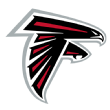 The Falcons formed a 15-member player committee last October to promote social justice. Members include Julio Jones, Devonta Freeman, Mohamed Sanu, Ricardo Allen and Ben Garland, among others. With the backing of team owner Arthur Blank and support from coach Dan Quinn, the committee partnered with the Atlanta Police Foundation, the Boys and Girls Club of Metro Atlanta and Atlanta Habitat for Humanity to do police ride-alongs, co-mentor children, meet with advocacy groups and build homes in the community. "You see things from the cops' perspective and from the people's perspective, so it was really interesting and eye-opening for me," Garland, who is white, said about interacting within the inner-city of Atlanta during the police ride-along. Nose tackle Grady Jarrett -- who was one of two Falcons to take a knee during the national anthem last season, along with Dontari Poe, who now plays for the Panthers -- discussed his thoughts on the initiative as a whole. "As a team, we did something that was united for us," Jarrett said. "We're just trying to make an impact and a step in the right direction. I enjoyed being with the youth the most, more than anything. ... As long as you try to impact youth life, whether it's on social justice or whatever, it's always good." -- Vaughn McClure
The Falcons formed a 15-member player committee last October to promote social justice. Members include Julio Jones, Devonta Freeman, Mohamed Sanu, Ricardo Allen and Ben Garland, among others. With the backing of team owner Arthur Blank and support from coach Dan Quinn, the committee partnered with the Atlanta Police Foundation, the Boys and Girls Club of Metro Atlanta and Atlanta Habitat for Humanity to do police ride-alongs, co-mentor children, meet with advocacy groups and build homes in the community. "You see things from the cops' perspective and from the people's perspective, so it was really interesting and eye-opening for me," Garland, who is white, said about interacting within the inner-city of Atlanta during the police ride-along. Nose tackle Grady Jarrett -- who was one of two Falcons to take a knee during the national anthem last season, along with Dontari Poe, who now plays for the Panthers -- discussed his thoughts on the initiative as a whole. "As a team, we did something that was united for us," Jarrett said. "We're just trying to make an impact and a step in the right direction. I enjoyed being with the youth the most, more than anything. ... As long as you try to impact youth life, whether it's on social justice or whatever, it's always good." -- Vaughn McClure
Philadelphia Eagles
 The Eagles have been one of the NFL’s more active teams. Malcolm Jenkins was a co-founder (with Anquan Boldin) and is a driving force behind the Players Coalition. During the season, Jenkins went on a ride-along with Philadelphia police. In September, he brought Eagles owner Jeff Lurie and NFL commissioner Roger Goodell to a day-long series of meetings with other players, the Philadelphia Police Commissioner, representatives of grassroots activist groups and public defenders to discuss criminal justice issues and criminal justice reform. Chris Long donated his entire 2017 salary to charity, including scholarships to the University of Virginia, his alma mater, and to organizations that promote educational equality in the three cities he has played in (Philadelphia, Boston and St. Louis). In May, Long, Jenkins and safety Rodney McLeod met with a group of public defenders to discuss bail reform. -- McManamon
The Eagles have been one of the NFL’s more active teams. Malcolm Jenkins was a co-founder (with Anquan Boldin) and is a driving force behind the Players Coalition. During the season, Jenkins went on a ride-along with Philadelphia police. In September, he brought Eagles owner Jeff Lurie and NFL commissioner Roger Goodell to a day-long series of meetings with other players, the Philadelphia Police Commissioner, representatives of grassroots activist groups and public defenders to discuss criminal justice issues and criminal justice reform. Chris Long donated his entire 2017 salary to charity, including scholarships to the University of Virginia, his alma mater, and to organizations that promote educational equality in the three cities he has played in (Philadelphia, Boston and St. Louis). In May, Long, Jenkins and safety Rodney McLeod met with a group of public defenders to discuss bail reform. -- McManamon
New England Patriots
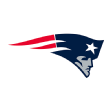 Safeties Devin McCourty and Duron Harmon, cornerback Jason McCourty, special-teams captain Matthew Slater and former special-teams standout Johnson Bademosi have been leading voices in the community through the Players Coalition and have received public support from owners Robert and Jonathan Kraft, who have attended events with them. Most recently, the McCourty twins, Harmon and Slater, moderated a debate between five of the six candidates in the Suffolk County district attorney race. As part of the debate, they asked questions about mandatory minimum sentences for drug crimes, discriminatory policing and mass incarceration rates among people of color. Said Slater of the crowd in attendance, "We're not trying to sway them one way or another. We want them to just be informed and educated so they can go to the polls and feel confident about the decisions they make." -- Mike Reiss
Safeties Devin McCourty and Duron Harmon, cornerback Jason McCourty, special-teams captain Matthew Slater and former special-teams standout Johnson Bademosi have been leading voices in the community through the Players Coalition and have received public support from owners Robert and Jonathan Kraft, who have attended events with them. Most recently, the McCourty twins, Harmon and Slater, moderated a debate between five of the six candidates in the Suffolk County district attorney race. As part of the debate, they asked questions about mandatory minimum sentences for drug crimes, discriminatory policing and mass incarceration rates among people of color. Said Slater of the crowd in attendance, "We're not trying to sway them one way or another. We want them to just be informed and educated so they can go to the polls and feel confident about the decisions they make." -- Mike Reiss
Buffalo Bills
 Some Bills players demonstrated during the national anthem twice last season: in Week 3 in the wake of the president's comments and a smaller group again in Week 4. Among the players taking part in the Bills' initial demonstration was linebacker Lorenzo Alexander, a team captain and member of the NFLPA's executive committee. Alexander released a statement Oct. 16 announcing that some players would use their day off that week to participate in community events to turn their demonstrations into actions. Alexander was also among Bills players attempting to organize a meeting with local political leaders, though several of his teammates with the same aim -- including quarterback Tyrod Taylor, running back Mike Tolbert, wide receiver Jordan Matthews and cornerback Shareece Wright -- were not retained by the Bills this offseason. -- Mike Rodak
Some Bills players demonstrated during the national anthem twice last season: in Week 3 in the wake of the president's comments and a smaller group again in Week 4. Among the players taking part in the Bills' initial demonstration was linebacker Lorenzo Alexander, a team captain and member of the NFLPA's executive committee. Alexander released a statement Oct. 16 announcing that some players would use their day off that week to participate in community events to turn their demonstrations into actions. Alexander was also among Bills players attempting to organize a meeting with local political leaders, though several of his teammates with the same aim -- including quarterback Tyrod Taylor, running back Mike Tolbert, wide receiver Jordan Matthews and cornerback Shareece Wright -- were not retained by the Bills this offseason. -- Mike Rodak
Detroit Lions
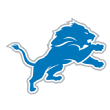 Last year, the Lions had players kneel in Weeks 3 and 4. Owner Martha Ford met with the players and told them she would give her backing -- and the organization's backing financially and otherwise -- to causes players decided on if they no longer knelt. The players spent a good portion of the season putting together their platform. At the league meetings in March, team president Rod Wood told reporters that the players chose to work with All-Pro Dad and Golden Tate's Golden Future Foundation, which works with veterans. Lions players have also had meetings with law enforcement officials. Whether this will continue is unclear, as the coaching staff has changed since last season. At the same league meetings, Wood told the Detroit Free Press that the club gave "a significant amount" of money to the charities but wouldn't say how much. Individual players have also taken up their own causes, including Ameer Abdullah working on fundraisers to combat Flint's water crisis. Last December, former Lions Anquan Boldin, DeAndre Levy and Don Carey went on a "Listen and Learn" tour in Detroit to learn about bail and jail sentence reform. During the 2016 season, Glover Quin went to Capitol Hill with Boldin for a series of meetings on social justice reform. -- Michael Rothstein
Last year, the Lions had players kneel in Weeks 3 and 4. Owner Martha Ford met with the players and told them she would give her backing -- and the organization's backing financially and otherwise -- to causes players decided on if they no longer knelt. The players spent a good portion of the season putting together their platform. At the league meetings in March, team president Rod Wood told reporters that the players chose to work with All-Pro Dad and Golden Tate's Golden Future Foundation, which works with veterans. Lions players have also had meetings with law enforcement officials. Whether this will continue is unclear, as the coaching staff has changed since last season. At the same league meetings, Wood told the Detroit Free Press that the club gave "a significant amount" of money to the charities but wouldn't say how much. Individual players have also taken up their own causes, including Ameer Abdullah working on fundraisers to combat Flint's water crisis. Last December, former Lions Anquan Boldin, DeAndre Levy and Don Carey went on a "Listen and Learn" tour in Detroit to learn about bail and jail sentence reform. During the 2016 season, Glover Quin went to Capitol Hill with Boldin for a series of meetings on social justice reform. -- Michael Rothstein
Seattle Seahawks
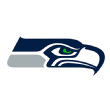 Last fall, the Seahawks launched a players' fund aimed at promoting equality and justice through education and leadership programs. Wide receiver Doug Baldwin, one of the players who spearheaded the fund, said it "gives us an opportunity to move the conversation off the field and actually into our communities and [allows] fans and people outside of this building to actually interact, know what we're doing, know what we've been trying to accomplish and actually take part in doing it with us." The Seahawks Players Equality & Justice for All Action Fund has raised around $1 million to date, according to the team. Baldwin, a member of the Players Coalition, has met with various lawmakers and law enforcement agencies in an effort to enact police reform. The son of a former Florida police officer, Baldwin spoke in front of the Washington State Legislature in February in support of Initiative 940, which, among other things, would require law enforcement to receive violence de-escalation training and change the standards for use of deadly force. -- Brady Henderson
Last fall, the Seahawks launched a players' fund aimed at promoting equality and justice through education and leadership programs. Wide receiver Doug Baldwin, one of the players who spearheaded the fund, said it "gives us an opportunity to move the conversation off the field and actually into our communities and [allows] fans and people outside of this building to actually interact, know what we're doing, know what we've been trying to accomplish and actually take part in doing it with us." The Seahawks Players Equality & Justice for All Action Fund has raised around $1 million to date, according to the team. Baldwin, a member of the Players Coalition, has met with various lawmakers and law enforcement agencies in an effort to enact police reform. The son of a former Florida police officer, Baldwin spoke in front of the Washington State Legislature in February in support of Initiative 940, which, among other things, would require law enforcement to receive violence de-escalation training and change the standards for use of deadly force. -- Brady Henderson
New York Jets
 Last December, a few players (Kelvin Beachum, Demario Davis and Josh McCown) were joined by owner Christopher Johnson at the Bronx defenders, a public advocacy group. They spent all day there, including Johnson, learning about the criminal justice system. -- Rich Cimini
Last December, a few players (Kelvin Beachum, Demario Davis and Josh McCown) were joined by owner Christopher Johnson at the Bronx defenders, a public advocacy group. They spent all day there, including Johnson, learning about the criminal justice system. -- Rich Cimini
Los Angeles Chargers
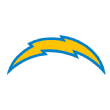 Chargers owner Dean Spanos symbolically stood arm-and-arm with players before a Week 3 contest against the Kansas City Chiefs after President Donald Trump's comments about the NFL. Spanos turned that act into action last month, with the Chargers implementing a social justice initiative in partnership with the city of Los Angeles along with local Boys and Girls Clubs in Los Angeles. The Chargers made a three-year, $1.2 million investment in the Summer Night Lights program, which helps keep city parks open late at night to create a safer environment for inner-city kids. Also, the franchise will make a six-figure investment in the Boys and Girls Clubs' STEM (Science, technology, engineering and math) program. "I thought the way we handled that last year was pretty dang good," Chargers coach Anthony Lynn said, when asked about his team's response to the National Anthem issue. "Our organization has stepped up and created different platforms for players in the community." -- Eric D. Williams
Chargers owner Dean Spanos symbolically stood arm-and-arm with players before a Week 3 contest against the Kansas City Chiefs after President Donald Trump's comments about the NFL. Spanos turned that act into action last month, with the Chargers implementing a social justice initiative in partnership with the city of Los Angeles along with local Boys and Girls Clubs in Los Angeles. The Chargers made a three-year, $1.2 million investment in the Summer Night Lights program, which helps keep city parks open late at night to create a safer environment for inner-city kids. Also, the franchise will make a six-figure investment in the Boys and Girls Clubs' STEM (Science, technology, engineering and math) program. "I thought the way we handled that last year was pretty dang good," Chargers coach Anthony Lynn said, when asked about his team's response to the National Anthem issue. "Our organization has stepped up and created different platforms for players in the community." -- Eric D. Williams
In Cleveland, the team invited police, firefighters and other first responders to run on the field with them before the season opener and to link arms during the anthem. Players went on ride-alongs with Cleveland police. They held one Neighborhood Summit in October and another in April. They also held an Equality Summit during the offseason, in which community leaders were brought in to talk to interested players about positive ways they could use their platforms.
Finally, the Haslams submitted written testimony on a state bill related to sentencing reforms.
One of the speakers at the Equality Summit was Ruel Sailor, who was recently released after spending 15 years in jail for a murder he did not commit.
"I was highly amazed that they would want a guy like me from the streets to come in there and speak with athletes," Sailor said. "I'm fully on board, though. I was given a second chance. So it's my duty to make a difference with this second chance."
Montague, with the Black Shield, said he has taken some of the ideas he has heard to the Department of Justice. Sergeant Jennifer Ciaccia, public information officer for the Cleveland police, said she saw officers and players exchanging numbers and developing personal relationships.
"The most important thing was that this was not a one-and-done," Ciaccia said. "Coming back the second time, you could really feel in the room that we were making some interesting connections. That has to be something that forms organically, right?"
Everyone involved, including the Browns, wants the program with the students to continue and grow.
"After the summit," Montague said, "the crime rate went down with the youth in that area. It was a small percentage, but it did go down as far as gang violence and gun violence in that area.
"If it stops one person from dying, it was beneficial."
As for Greer-Garrett, there were hugs and words of support from the police and players, one of whom empathized completely with her words.
"I understood what she was talking about," linebacker Chris Kirksey said, "because I grew up in the same kind of environment."
































